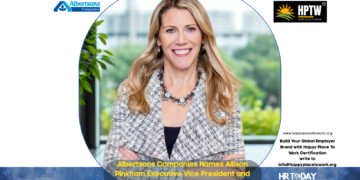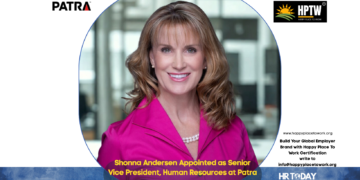“Stories about Gen Z disengagement aren’t just opinions—they’re backed by data showing one of the sharpest drops in workplace motivation among any generation.”
Generation Z — born between 1997 and 2012 — has grown up and now comprises a significant part of the workforce. However, many employers have noticed signs of disengagement in their younger staff. Understanding the factors behind these issues is the first step toward building strategies to help Gen Z employees succeed at work.
Gen Z’s Motivation Issues in the Workplace
While Gen Z isn’t a monolith, many employers have noticed trends in their attitudes and approach to work. Some have observed motivation issues, and managers may find Gen Z team members act differently from other generations.
These observations are more than opinions — they have statistical backing. A recent Gallup poll noted a decline in employee engagement across the board. Their data shows that only 31% of U.S. employees are engaged at work, and 17% are actively disengaged. Workplace engagement significantly declined among Gen Z employees, who experienced a five-point drop from the previous year.
This disengagement can manifest in different ways, like decreased productivity and higher turnover rates. An unmotivated employee can affect others around them, impacting morale.
Understanding the Root Cause
Why do many Gen Z employees experience workplace motivation issues? It likely isn’t something they choose to do. Many of these workers have a more jaded or distrustful attitude toward corporate culture, primarily due to a rough transition to adulthood.
Older Gen Z employees entered the workforce just as the COVID-19 pandemic hit, and many lost their jobs soon after they got them. As a result, they have developed a more practical approach to work and compensation. They understand the precarity of the economy and the job market, so they don’t attach themselves to work more than necessary.
Instead of prioritizing upward corporate mobility, this staff chooses to focus on their lives outside of work. They want sufficient compensation, an excellent culture, purpose and work-life balance.
Actionable Strategies for HR: Helping Gen Z Succeed
Improving engagement among Gen Z employees is partially the company’s responsibility. Try using these strategies to encourage participation and motivation in your younger team members.
Foster Open Communication and Regular Feedback
Gen Z appreciates direct communication and transparency. Schedule regular meetings and two-way feedback sessions where you can communicate openly about work expectations and performance. Motivation often starts from awareness of how their role contributes to the organization.
It’s also important to encourage openness in these conversations. Create a safe space for Gen Z to voice their observations and concerns, and show them that their ideas matter through actionable takeaways.
Encourage Purpose-Driven Work and Social Impact
A recent Deloitte survey found that 89% of Gen Z employees want a sense of purpose, as it affects their job satisfaction and well-being. In fact, nearly one third of employees quit their jobs in one year due to a lack of meaning in their roles. Employees — particularly those in Gen Z — want to do something and contribute to causes they care about.
One example is how Gen Z values inclusion as a personal value. Organizations that embody inclusion through their policies and practices can better engage and attract this demographic. You can also extend these efforts toward the broader community through volunteer opportunities and support for employee-led initiatives.
“For Gen Z, purpose, inclusion, and balance are not perks—they are non-negotiables that define whether they engage or disengage at work.”
Invest in Professional Development
While fewer Gen Z workers might want to climb the career ladder, this does not equate to a lack of ambition. Many Gen Zs consider learning and development a top factor when choosing an employer.
Businesses should provide access to training, mentorship and upskilling programs to engage employees better. More than overseeing their daily tasks, Gen Zs want their managers to mentor and inspire them.
Respect Healthy Work-Life Boundaries
Conversations around mental health are more prevalent among younger generations. Gen Z significantly values work-life balance and appreciates employers who respect their time and well-being.
Consider implementing flexible work arrangements with reasonable workloads. Recent data shows that 59% of employees would accept a job offer if it had a remote or hybrid arrangement. Keep meetings and productivity expectations confined to working hours — once the workday is over, everyone should disconnect.
Provide Adequate Compensation
While purpose and work-life balance are essential, Gen Z prioritizes fair pay and benefits. Financial security is a significant factor affecting how this generation views their work.
Many face significant financial strain as essentials like food and housing grow more expensive. A recent survey revealed that over 40% of Gen Z workers struggle to make ends meet with their current salaries — just 16% say they’re “doing well.”
Empowering Gen Z for Workplace Success
Motivating Gen Z requires understanding the circumstances that shaped them and the values that guide them. It’s about creating an environment where they feel heard, supported and valued. Adapting to the needs and circumstances of Gen Z workers does more than motivate your younger employees. It also improves the well-being of the entire workforce, strengthening your brand’s culture.
“Motivating Gen Z isn’t about changing who they are—it’s about creating workplaces where their values, voices, and potential are truly recognized.”
Read Also : When HR “Produces Nothing”: A Response to Jennifer Sey’s Anti-HR Vision
The Fine Balance: Navigating Work, Life, and Mental Wellbeing
Mind the Leadership Gap – From Learning to Real-World Impact
How the Adecco Group is empowering its employees for the future of work













